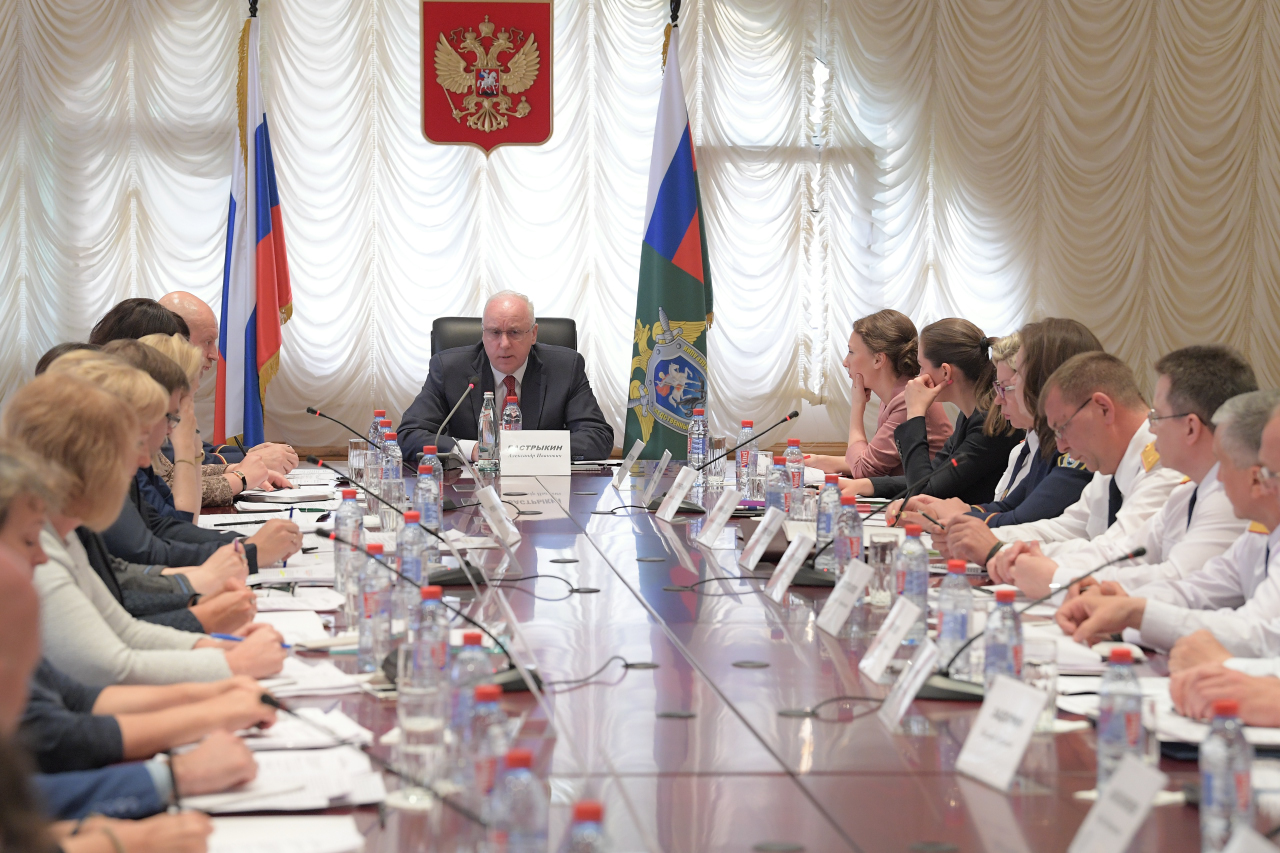
Address of the reception office of the Investigative Committee: Moscow, ul. Pervaya Frunzenskaya, d 3a
Address for writtent applications: 105005, Moscow, Tekhnichesky Pereulok, 2
Address of the reception office of the Investigative Committee: Moscow, ul. Pervaya Frunzenskaya, d 3a
Address for writtent applications: 105005, Moscow, Tekhnichesky Pereulok, 2

The Chairman of the Investigative Committee has held a meeting to discuss prevention of crimes against minors passed on to foster families and improved performance of guardianship authorities. The meeting was attended by Children’s ombudsman Anna Kuznetsova, representatives of the RF Ministry of Education and Science and Federal Service for Oversight in Education and Science, officials of the Investigative Committee’s central office and regional offices.
Speaking at the meeting Chairman Alexander Bastrykin stated that “the number of children placed in foster families has recently risen and in general it suggests that the state authorities have been actively working to secure the right to live and be raised in a family. However, the quality of life of children in such families is not always up to the mark.” Mr. Bastrykin reminded those present about negative practice when “newly-made foster parents get a dozen children or even more and pretend to be a happy family when they need to get money from the state” and added that “not in all cases an individual approach is used to decide on whether to place children under guardianship or in a foster family.”
The Chairman produced statistics according to which in 2016, crimes were committed against adopted children in 86 foster families (in 70 in 2015). Mr. Bastrykin pointed out possible lethal nature of such crimes explaining that “even an ordinary child, let alone the one who has no parents, can’t always confess that they were abused, so such crimes are committed multiple times over a long period of time.”
For example, there is an ongoing investigation in Khabarovsk Territory against a father of many children and at the same time a guardian of 6 children charged with sexual abuse of the girls in his care. Investigators have revealed that the guardianship authorities failed to provide proper control over the children’s living conditions and thus failed to reveal the crimes committed against them. Negligence investigation has been launched.
Mr. Bastrykin stressed that “the state has committed to take care of children left without parents. It cannot be allowed that such children are raised in families where they may be abused by the people who should have replaced their parents.” Mr. Bastrykin also raised a question about requirements to such people explaining that “foster candidates are prepared by guardianship authorities, educational, medical, social and other organizations to which such functions are delegated by the guardianship authorities. The guardianship authority has to set a procedure to control how those organizations use the delegated functions.” “In practice however not all Russian regions have this procedure, as there is no centralized system of guardianship authorities headed by an authorized federal executive body,” said the Chairman.
Children’s Ombudsman Anna Kuznetsova formulated a number of principles for changing the current system of foster care. She noted that “in the first place, we need new criteria to assess the efficiency of guardianship authorities. There should not be a perfunctory attitude to choosing a foster family and to monitoring and mathematical principles should not be applied to assessing the children’s life quality in foster families. The tem “child’s interests” should not be manipulated as its loose interpretation leads to negative results.” Ms. Kuznetsova sincerely thanked the Investigative Committee for cooperation and added that “we should pursue a preemptive tactic together, then out joint efforts will give positive results by all means.”
The Chairman offered his support and all-round cooperation in implementing legislative initiatives in the said area and summed up that “out task today is to work out a systematic approach to the matter – what the institute of foster parenting should be.”
In conclusion, Mr. Bastrykin expressed his confidence that by joint efforts, with participation of all concerned agencies, with comprehensive approach to problems of preventing crimes against children in foster families, it is possible to achieve positive results in protecting minors. At the same time, it is obvious that consolidation of family will contribute to solving the problem.
Official spokesperson for the RF Investigative Committee S. Petrenko